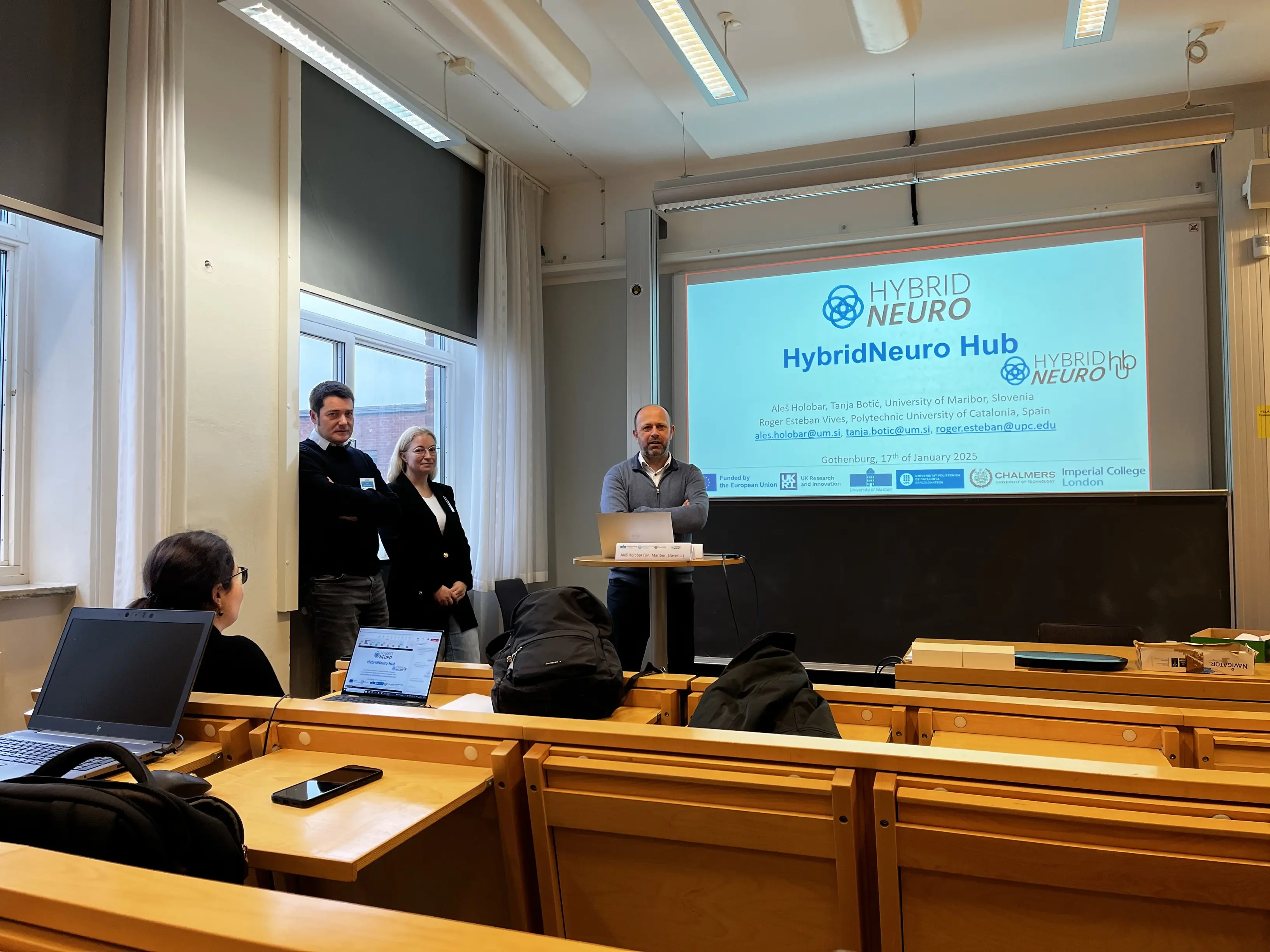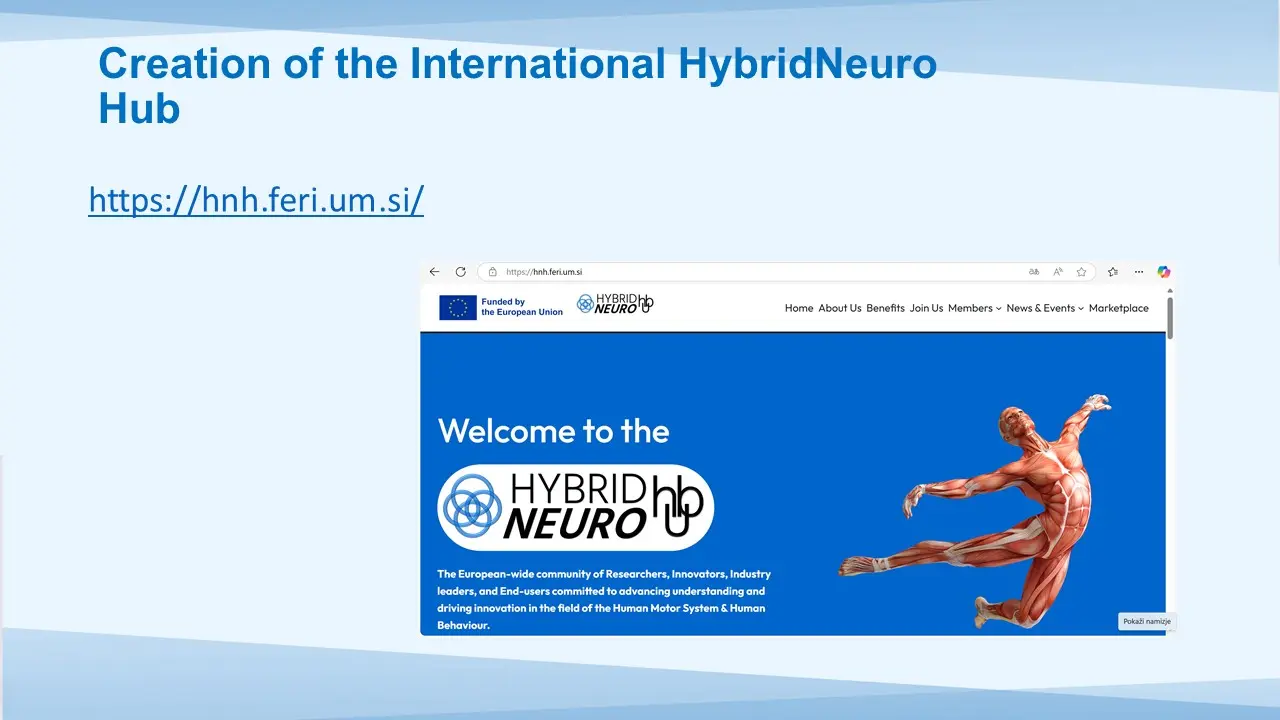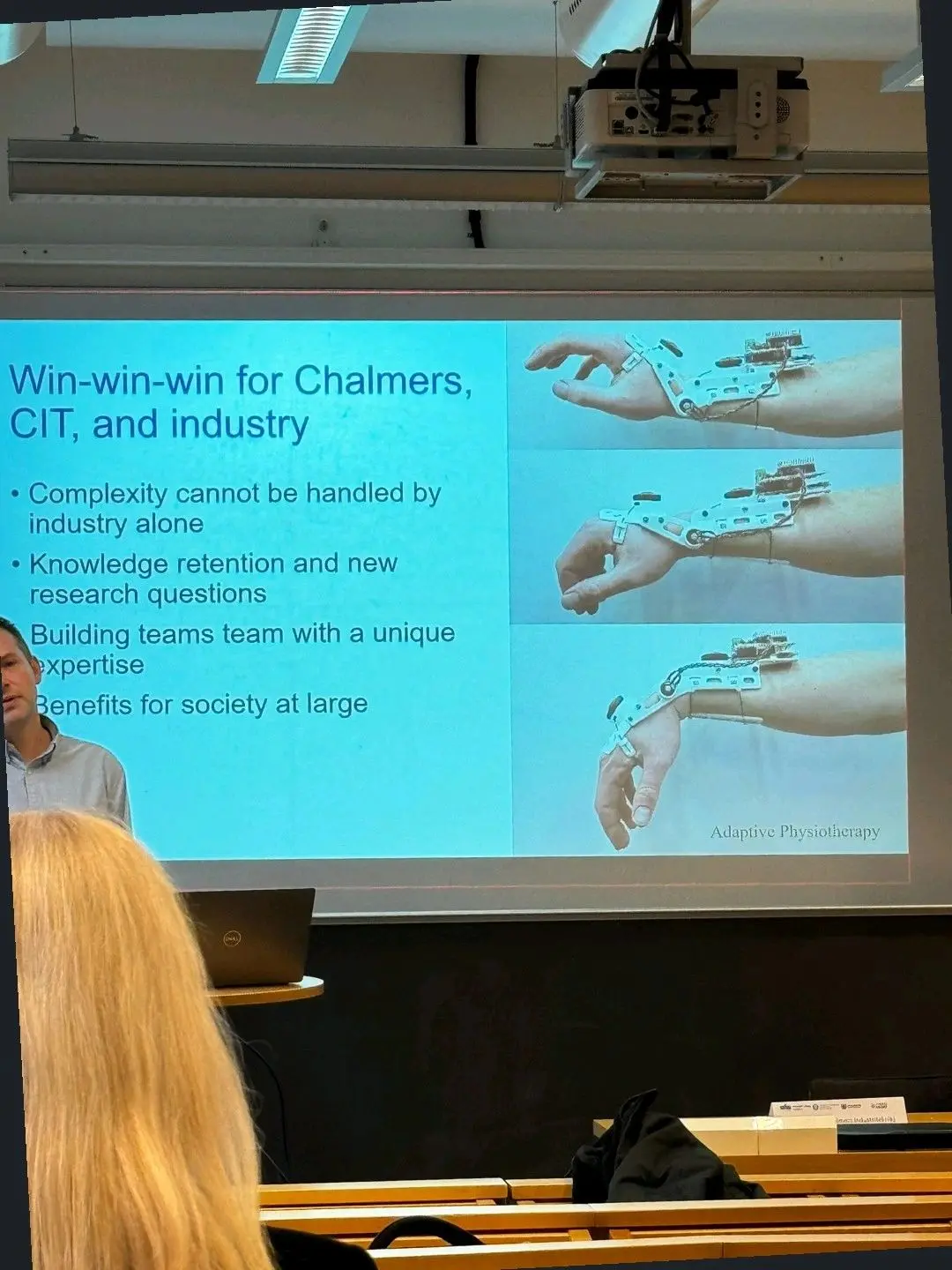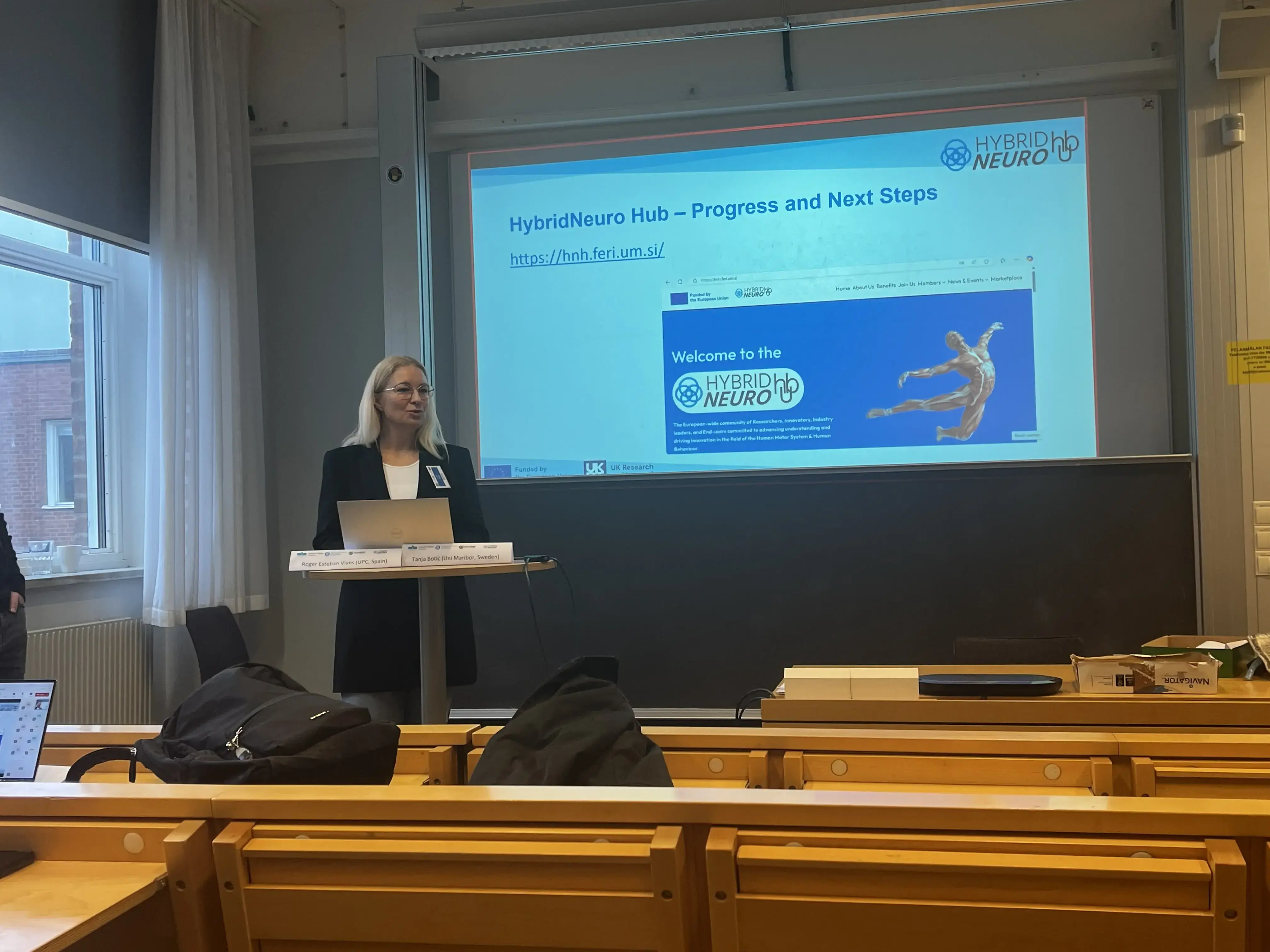Third Research Management Exchange to Chalmers University of Technology
From 14th to 17th January 2025, coordinator and lead scientist Aleš Holobar and Research Project Manager Tanja Botić from the University of Maribor (UM) participated in a training visit to Chalmers University of Technology (CHALMERS) in Gothenburg. The training visit focused on strengthening expertise in MSCA Doctoral Networks (DN) applications, improving grant management practices for EU-funded projects and advancing technology transfer activities.
The visit provided valuable insights into structuring competitive MSCA-DN proposals, emphasizing consortium composition, project mobility, collaboration, and institutional commitment as key success factors. Silvia Muceli from CHALMERS highlighted the importance of aligning proposals with EC objectives and discussions considered the HybridNeuro consortium for future MSCA-DN applications.
This was followed by a presentation and round table discussion from CHALMERS' Central Grant Office, which shared strategies for optimizing reporting processes to ensure efficient grant management and compliance with EU funding regulations. Key discussion included risk management, clear reporting guidelines and effective communication with project officers, equipping UM with practical tips to enhance internal grant support frameworks.
During visiting days, the Chalmers Innovation Office presented its technology transfer resources, guiding researchers through commercialization pathways. The Chalmers Industriteknik outlined strategies for strengthening academic-industry collaborations, emphasizing the role of applied research in industrial innovation.
The UM team, with support from UPC partners, presented the HybridNeuro Hub, a long-term initiative advancing research at the intersection of Human Motor Systems and Human Behaviour to researchers and some stakeholders from the Swedish industry. Designed to extend beyond the HybridNeuro project, the Hub aims to foster interdisciplinary collaboration, facilitate knowledge transfer and support the transition from laboratory research to real industry applications.





